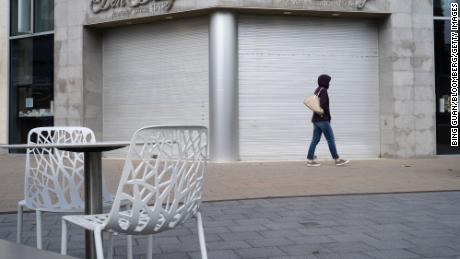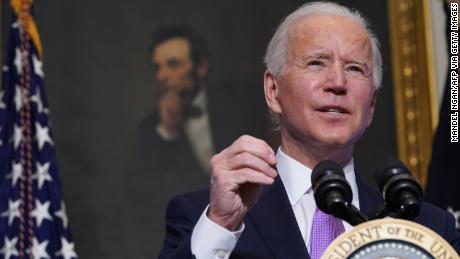Yellen: Biden’s stimulus plan could bring US back to full employment next year
“I would expect that if this package is passed that we would get back to full employment next year,” Yellen told CNN’s Jake Tapper on “State of the Union.”
“The Congressional Budget Office issued an analysis recently and it showed that if we don’t provide additional support, the unemployment rate is going to stay elevated for years to come,” she added. “It would take (until) 2025 in order to get the unemployment rate down to 4% again.”
Yellen’s assessment comes as the White House is pushing the President’s package through Congress, where it faces resistance from Republicans opposed to its price tag as well as some of its key elements. Lawmakers are under pressure to pass a relief package as Americans continue to suffer financially amid the pandemic’s economic fallout.
Full employment does not mean the unemployment rate is at zero, but, instead, generally that employers have hired as many qualified professionals as they need.
Democrats push ahead
Democrats have made moves to allow them to pass the relief proposal without Republican support.
Democratic Rep. Debbie Dingell, a member of the Bipartisan Problem Solvers Caucus, defended Biden’s attempt to pass the relief bill with or without GOP support on “Inside Politics” Sunday morning, telling CNN’s Abby Phillip, “We can’t let politics become the enemy of the good.”
“We want them there. We’re going to try to work with them. We’re listening. Their input is there, but we’ve got to get a bill done,” Dingell, who represents Michigan, said of her Republican colleagues.
Among those opposed to Biden’s plan is Republican Sen. Pat Toomey of Pennsylvania, who told Tapper later on “State of the Union” that the plan is “not the right solution.”
The country, he said, doesn’t have an “economy in collapse the way it was in March” 2020. Instead, Toomey argued that there should be talks for directly helping those working in the restaurant, hospitality and entertainment industries.
“We have the tools to deal with that risk if it materializes. But we face a huge economic challenge here and tremendous suffering in the country. We have got to address that. That’s the biggest risk,” she said.
This story has been updated with additional details Sunday.
CNN’s Tami Luhby, Katie Lobosco, Chris Isidore, Anneken Tappe, Ted Barrett, Paul LeBlanc, Clare Foran, Chandelis Duster and Nicky Robertson contributed to this report.
![]()






